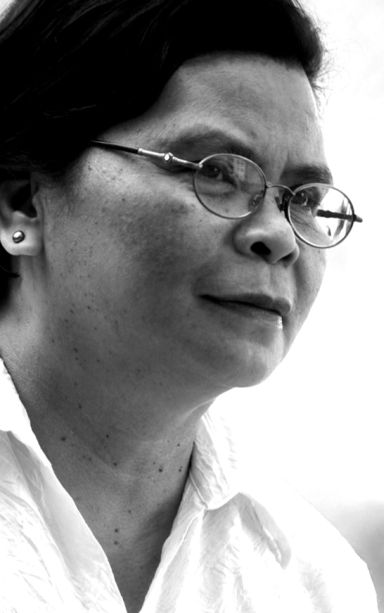
DELA CERNA
The passing away of Dr. Thelma B. Kintanar, erstwhile feminist and scholar, “visionary and doer” as former president Jose Abueva called her, three weeks ago reminded me of the work on women and cultural literacy, which I did with her at the helm in the 1990s. She was the editor of the UP project on Cultural Dictionary for Filipinos when I first met her in 1991. She consulted me regarding the entries of Cebuano culture in the Dictionary.
A major assumption of the Dictionary is that, regardless of the diversity of cultures in the Philippines, there is a national discourse to which all Filipinos who have reached a certain level of literacy are exposed and in which they can participate. The objective of the Dictionary is to identify the core contents of this national discourse, hoping that it may aid in the emergence of Filipino cultural identity with the belief that this identity is not necessarily Manilacentric and recognize the rich cultural contributions of each region. The Cultural Dictionary for Filipinos was published by UP Press and Anvil in 1996.
The Dictionary has 31 subject categories covering the major divisions of knowledge: the natural sciences, the social sciences and the humanities. It is not a language dictionary but the language of the Dictionary is basically English. The Dictionary aims at a readership of teachers, high school and college students.
In 1992, when she was the coordinator of the Research and Publication of the UP University Center for Women’s Studies, she asked me to write about women empowerment in Cebu for the 1992 issue of the Review of Women’s Studies, the publication of the University Center for Women’s Studies, which focused on Cebu. She was married to a Cebuano, Agustin Kintanar from Argao. At that time, too, I was just starting my doctoral studies in UP Diliman and when I finished my dissertation in 1997 entitled “Towards a Feminist Leadership in Philippine Setting: Experiences and Articulations of Selected Women Leaders,” she was one of my panelists (the others were Dr. Rosalinda Ofreneo, my critic; Dr. Carolyn Sobritchea, Dr. Ma. Luisa Camagay, and Dr. Normita Recto, my adviser).
Thelma B. Kintanar was a Professor of English and Comparative Literature at UP Diliman. Her academic and literary interests included modern English literature, women’s studies and translation. She has written essays on these topics for locally and internationally published journals and encyclopedia. Among her books are “Self and Society in Southeast Asian Fiction” (Singapore, 1988), a comparative study of fiction in five Southeast Asian countries, and “Emergent Voices: Southeast Asian Women Novelists” (Q.C., 1994), done in collaboration with other ASEAN scholars. Her translations included “Daigdig ng Tao” (Manila, 1990), a translation into Filipino of a major Indonesian novel by Pramoedya Ananta Toer. She was also the editor and co-author of “Women Reading: Feminist Perspectives on Philippine Literary Texts” (Q.C., 1992), the first book of feminist literary criticism published in the Philippines.
***
Another substantial woman who worked for conscientization through writing, contemporaneous with Thelma Kintanas was Letizia R. Constantino (wife of nationalist Renato Constantino). She was the editor of the Teacher Assistance Program (TAP), one of the services promoted by the Education Forum, the task force on education of the Association of Major Religious Superiors of the Philippines in the mid-1980s. To assist teachers and other educators, TAP offered a series of supplementary materials (SMs) published twice a month and prepared to respond to the needs of conscientizing educators in teaching effectively to promote social awareness and transformation.
Each year’s output of supplementary materials produced for the subscribers of the Teacher Assistance Program was compiled in a book “Issues Without Tears: A Layman’s Manual of Current Issues,” an ongoing series.
Given the time constraints on research and writing and the need for brevity, these reading materials are very far from being exhaustive or scholarly discussions of the subjects covered. The subtitle, “A Layman’s Manual,” accurately describes what these articles are: short pieces written for laymen, by a layman.
The TAP supplementary materials were very helpful to teachers in the 80s and these were greatly complemented with a series of ERF Summer Institutes on the different fields, which tackled content and methodology for elementary and secondary school teachers.
Disclaimer: The comments uploaded on this site do not necessarily represent or reflect the views of management and owner of Cebudailynews. We reserve the right to exclude comments that we deem to be inconsistent with our editorial standards.
